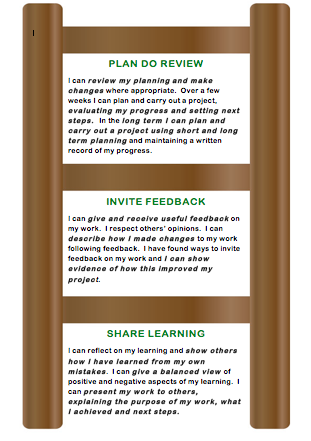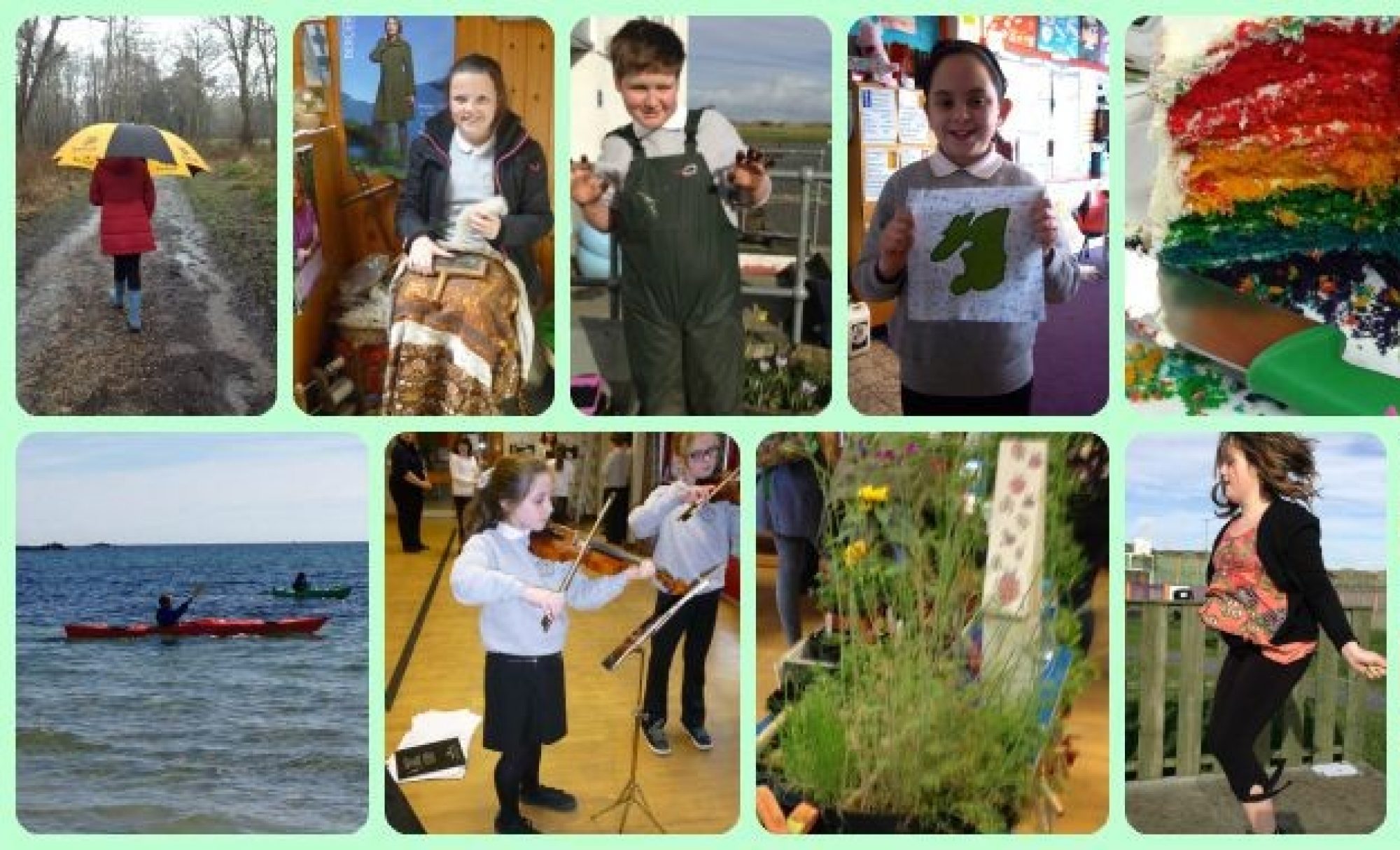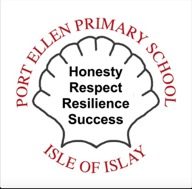
During the pilot process we worked with other schools on Islay, Jura and Kilmodan in developing Endeavour, although each school took a slightly different approach in the way it was structured that suited their individual situations. As a group we identified skills development as the key structure for the project; children would be choosing from a wide range of topics with vastly different areas of learning and specific skills but all of them could focus on assessing specific transferable skills-skills, for life, learning and work. On Islay and Jura we had developed our own skills ladder based around the four capacities and related transferable skills that would be applicable in the world of work. It was the skills for successful learners and confident individuals that the children would focus on developing through their Endeavour; most regularly plan do review, inviting feedback and sharing learning from Successful Learners.
Space needed to be created in the curriculum for Endeavour, and we decided an afternoon a week was necessary to allow children enough time to develop their projects in depth. Because we were covering different skills in such depth it was felt that this was justifiable, and the personalisation of children’s learning was also a key aim we could fulfill.
To ensure children were focused and managing their time well (Confident Individuals), a plan do review (Successful Learners) structure was used to manage the projects. Over time children filled out long term, medium and short term planners. Once a term they would work in pairs to discuss and assess their Endeavour progress based on questions on an assessment peer review sheet; they would also be monitored by myself at the start through planning meetings and during the term to ensure progress was being made. The ethos of Endeavour is very much independent learning, and your role is less that of teacher and more that of coach or mentor. It was really important that children developed project management skills and used them without being over managed by myself, even if that meant at times they hit problems. I would offer advice on how to manage any problems that arose, but I had to resist the urge to do it for them if I was to help them become more resilient and independent. And I was regularly surprised by how much they could achieve on their own, and how well they dealt with challenges they faced.
Short term planning happened at the start of each lesson; children would review the previous session and then plan their activities for the afternoon. Some found this planning quite hard to manage initially and needed support, but by the end of the year they could clearly see the benefits. They would carry out their tasks and at the end write down what they had achieved and next steps. Sharing learning was one of the key aims of Endeavour and at the end of each session two children would present their learning to the rest of the class, with a question and answer session afterwards. These sessions are invaluable for children to think through their projects, and the questioning from other children was always surprisingly perceptive and testing. Oh, and I would often use these sessions as a talking and listening assessment for my records!




